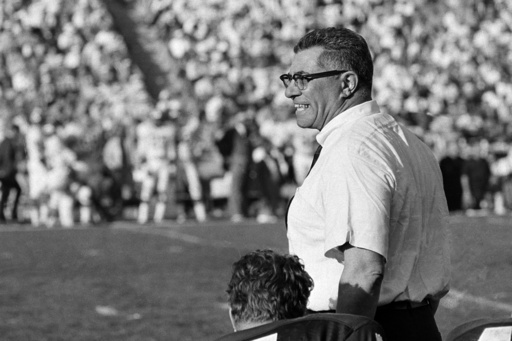NEW ORLEANS — As the Super Bowl approaches, all eyes are on the Kansas City Chiefs as they aim to become the first team in NFL history to capture three consecutive Super Bowl titles. However, it’s important to clarify that this achievement won’t be considered the league’s first “three-peat.”
Historically, every team that previously won back-to-back Super Bowls before the Chiefs failed to make it back for a third consecutive title. Interestingly, the NFL has recorded two instances of teams claiming three straight championships—both by the Green Bay Packers. Under the leadership of Curly Lambeau, the Packers secured NFL titles from 1929 to 1931, long before there was a playoff system. Then, in the 1960s, Vince Lombardi’s Packers reclaimed the glory with a historic run. Green Bay not only took the NFL title in 1965 but also won the first two Super Bowls against the champions of the AFL, thus completing an impressive three-peat that the players take immense pride in.
Hall of Fame linebacker Dave Robinson voiced his thoughts on the topic, stating, “If Kansas City wins, I don’t want to hear about the only three-time champions. That’s BS.” Robinson played a vital role in the Packers’ 1965 championship victory, where they bested the Cleveland Browns 23-12, famously limiting star Jim Brown to just 50 rushing yards in his last NFL appearance. The Bills of the AFL also claimed the title that year with a significant win over the Chargers. Robinson reflected on the era, emphasizing, “There was no doubt in anybody’s mind, AFL guy or NFL guy, that the Green Bay Packers were the best team in pro football at that point. It wasn’t close.”
Following the season, an agreement was reached to merge the leagues. During the transition period from 1966 to 1969, both leagues maintained separate regular-season schedules until the merger fully came into effect in 1970. However, the champions from each league battled for the ultimate title in matches that later were known as the Super Bowl. The Packers triumphed in both 1967 and 1968, overpowering Kansas City 35-10 in the inaugural Super Bowl and defeating Oakland 33-14 the following year. After that victory, Lombardi stepped down as the head coach, and the Packers’ dynasty waned, missing the playoffs in 1968. They also witnessed the AFL’s New York Jets upset the Baltimore Colts in Super Bowl III.
Reflecting on what could have been, Robinson remarked, “If he stuck around one more year, we would have won three straight Super Bowls. No one thought the Super Bowl would be as significant as it became because the NFL was far superior to the AFL during those years. We would have beaten the Jets. They were a solid team, but we would have beaten them.” From his youth rooting for the New York Giants, Robinson is now supporting the Eagles this Sunday, primarily due to his connection with Penn State alum Saquon Barkley rather than harboring any animosity toward the Chiefs.
While there may be feelings of being overlooked among the Packers, they still hold a level of respect for the Chiefs and their recent achievements, led by coach Andy Reid and star players Patrick Mahomes and Travis Kelce. Hall of Fame guard Jerry Kramer shared his sentiments in a recent interview, saying, “First of all, yes, it does bother me. I’m aware of it. I’m not crying or having a fit, but there’s a little resentment there. However, when I observe the Kansas City Chiefs and their level of performance, especially Mahomes and Kelce, I must acknowledge they are a great football team. I appreciate that and recognize how challenging it is.”
If the Chiefs triumph on Sunday, marking their third consecutive championship and fourth in six years, the Packers will still have their historical achievements to lean on. Green Bay also secured NFL titles in 1961 and 1962, maintaining a unique distinction as the only team to win five championships within a seven-year period. “We’ll have to start talking about five out of seven,” Kramer noted. “They still have a little hill to climb. I’ve progressed from three in a row to five out of seven. I genuinely hope they succeed; my life has been complete, and I’ve enjoyed a wonderful journey.”



